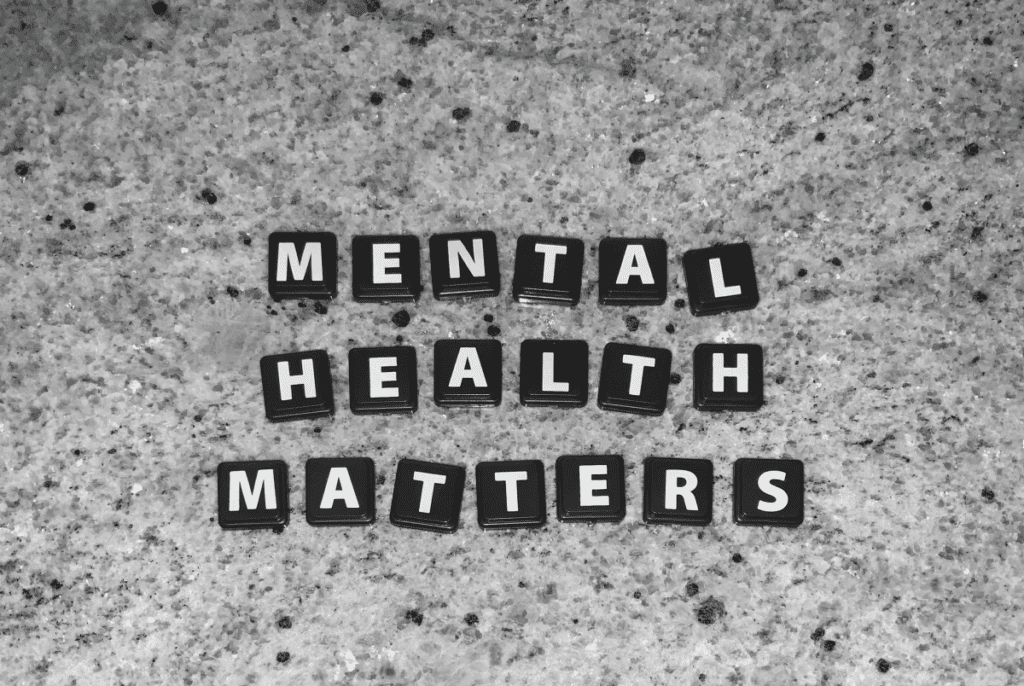For years, many studies have shown how physical health and mental health are fundamentally linked. Physical health can refer to someone’s physical activity level, diet, nutrition, sleep cycle, and consumption of drugs and alcohol. Mental health is characterized by changes in someone’s mood, thinking, and behaviour associated with distress and impaired functioning. It can include our emotional, social, and psychological well-being. The fundamental link between physical and mental health exists due to a variety of reasons. Though the mind and body are often viewed as being separate, they are very closely related. In this article, we will be exploring 3 important parts of the relationship between physical and mental health, and what this can mean for your overall health.
Gut Health and Mental Health
A healthy gut is key to overall physical health. In recent years, more studies on gut bacteria have shown the link between gut health and mental health. Your brain is connected to the rest of your body through something called the “vagus” nerve. The vagus nerve communicates with the rest of your organs and enables you to breathe, swallow, and digest your food. This nerve is responsible for your brain communicating with your gut, and vice versa, via the gut-brain axis.
If your gut microbiome is imbalanced, your overall mood can be affected. Your gut microbiome needs to be diverse in order to stay balanced. If unbalanced, inflammation can occur and this inflammation can contribute to depression, stress, and more.
So, how do I keep my gut healthy?
If you want to keep your gut healthy and happy, balance is key. You can keep your gut healthy by eating a diet full of diverse vegetables, prebiotics and probiotics, and fermented foods. Now that we know the connection between gut health and mental health exists, you can also improve your gut health by reducing overall stress. Practising meditation, exercising frequently, and removing stressors from your daily routine are three effective ways to reduce stress levels in order to improve your gut health.
Sleep and Mental Health
It goes without saying that sleep plays an important role in your physical health. Chronic lack of sleep can be linked to an increase of heart disease, kidney disease, diabetes, high blood pressure, and more. Unfortunately, chronic lack of sleep can also really affect your mental health.
Adequate sleep, especially REM sleep, facilitates the brain’s processing of emotional information. While you are sleeping, your brain works to assess thoughts and memories. Lack of sleep can affect this process by harming the consolidation of positive emotional content.
Studies have shown that 75% of depressed people show symptoms of insomnia. With other mental illnesses, such as anxiety, the relationship between sleep and anxiety can go both ways. People who suffer from anxiety may have late night thoughts and worries that keep them up at all hours of the night. On the other hand, experiencing sleep deprivation can also cause feelings of anxiety.
The link between sleep and mental health is strong, and it goes both ways. A good night’s sleep is important for your overall health. If you are someone who is affected by late night thoughts and worries, try using some of our tips for a good night’s sleep.
Exercise and Mental Health
Physical exercise goes beyond just keeping in shape. While the physical benefits of exercise are often discussed, the link between exercise and mental health is sometimes overlooked.
Physical exercise can play a key role in overall mental wellbeing. The link between physical exercise and mental health has been studied for years. A study from 2004 explained it simply: when you are exercising, there is an exercise-induced increase of blood circulation to your brain. This increase is said to be the reason why exercise helps reduce anxiety, depression, and negative moods. In fact, daily exercise is just as important for your emotional and mental health than it is for your physical health.
Exercise has been found to improve self esteem, and alleviate feelings of low self esteem and social withdrawal. No matter your fitness level, incorporating a bit of exercise every day can have profound effects on your mental wellbeing. Just 30 minutes of regular exercise, such as a brisk walk, a few times a week is said to provide mental health benefits.
The bottom line
Physical health and mental health are intrinsically linked. Physical health problems can be detrimental to your mental health, and vice versa. In order to stay healthy, you have to take care of your mind and your body.
If you are worried about your physical health, mental health, or both, book an appointment with Your Health Lab at any of our locations. We have locations all over Texas, including Fort Worth, San Antonio, Victoria, Houston and Dallas. For more information on how you can stay healthy physically and mentally, we have more tips here.
